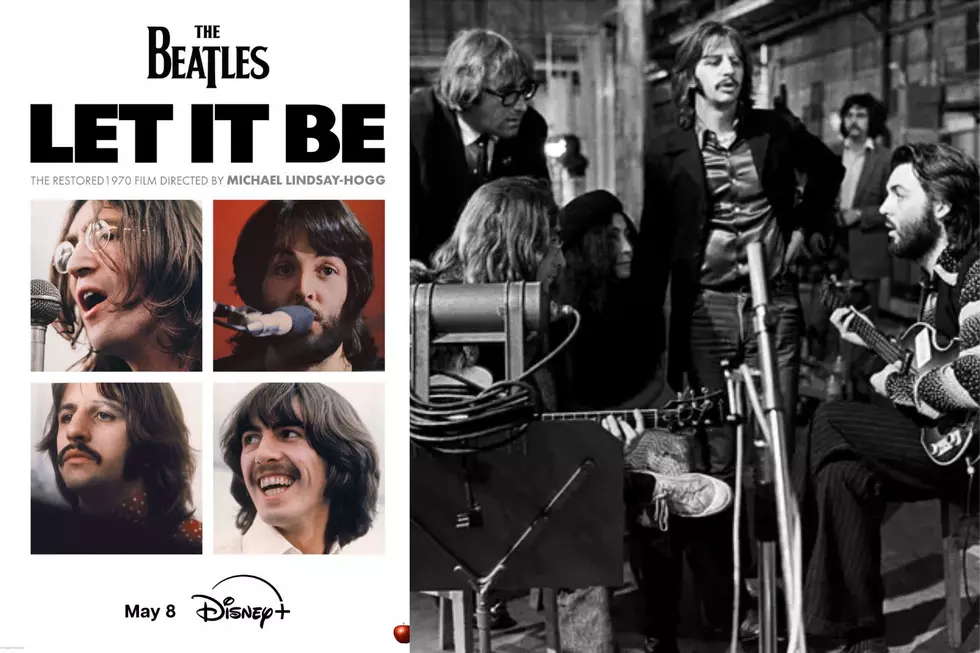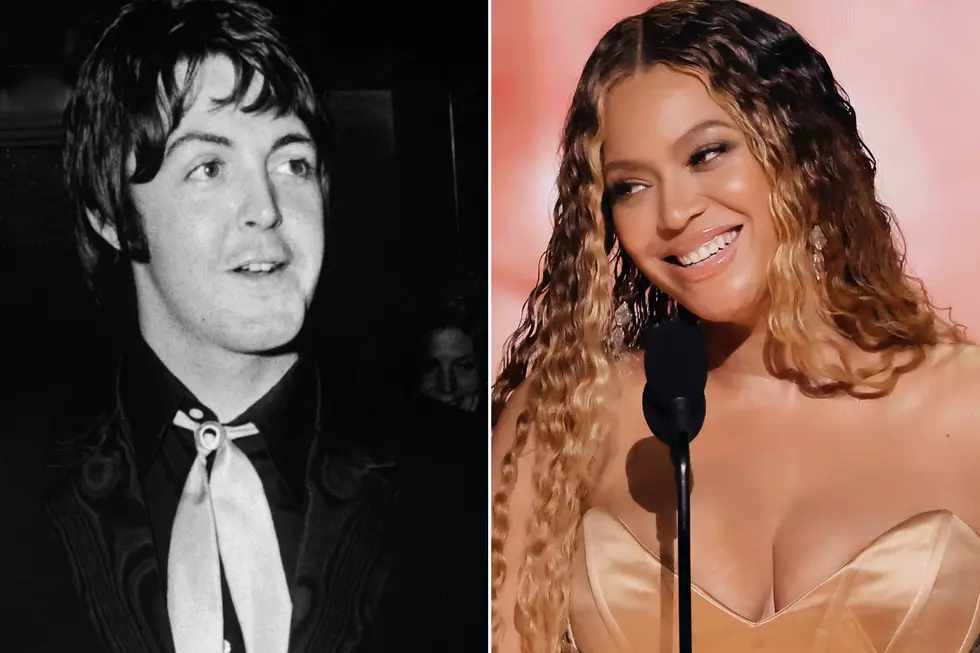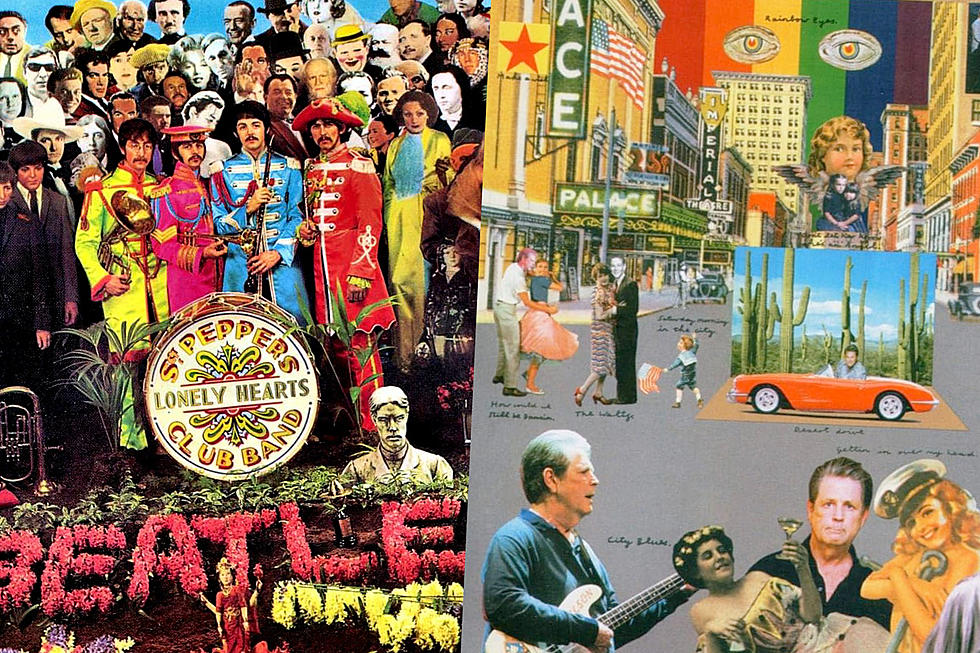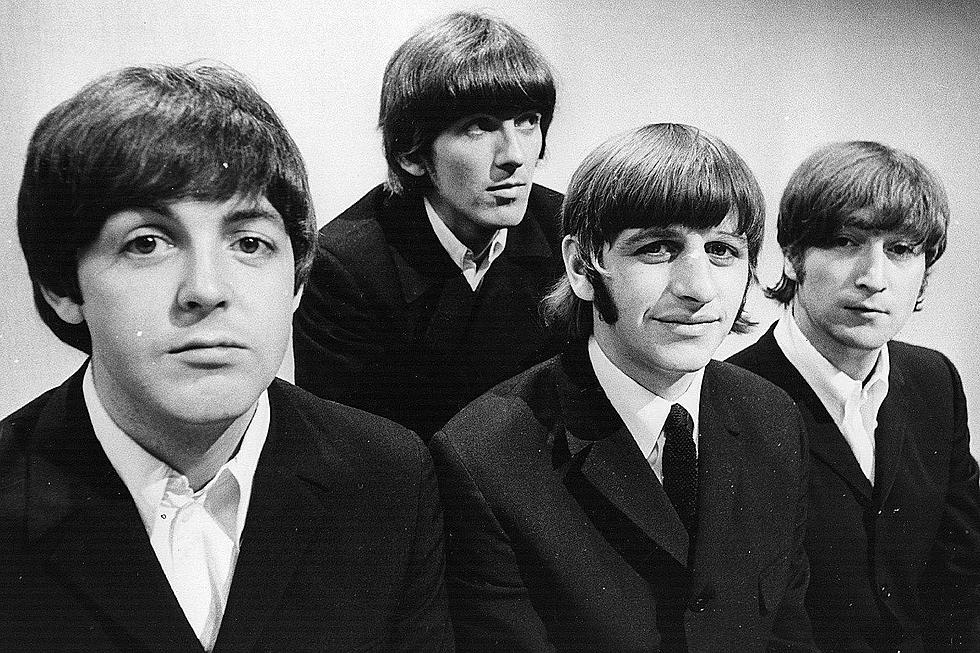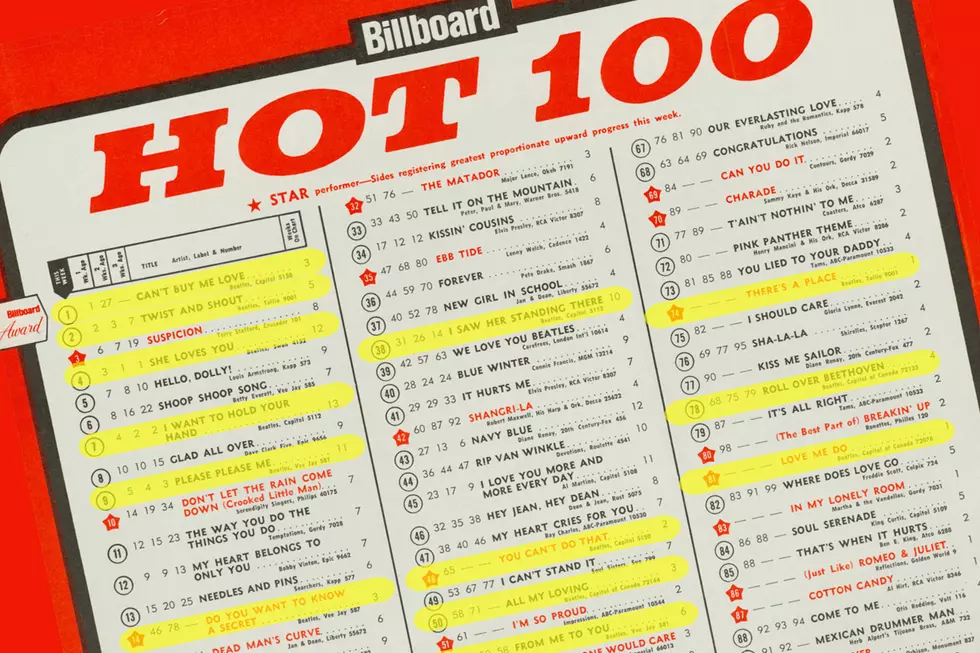
How a Rule Change Helped Topple a Signature Beatles Chart Record
The Beatles set a record for most songs in the Hot 100 on April 11, 1964, notching a remarkable 14 entries. The mark stood for more than a half century, until Billboard changed the way songs are included on the charts.
"Can't Buy Me Love" and "Twist and Shout" held the No. 1 and 2 positions, as Beatlemania swept through the U.S. "She Loves You" (No. 4), "I Want to Hold Your Hand" (No. 7) and "Please Please Me" (No. 9) were also in the Top 10. (Both "She Loves You" and "I Want to Hold Your Hand" had already gone to No. 1 and were working their way back down the chart.)
"Do You Want to Know a Secret" clocked in at No. 14. The Hot 100 also featured "I Saw Her Standing There" (No. 38), "You Can’t Do That" (No. 48), "All My Loving" (No. 50), "From Me to You" (No. 52), "Thank You Girl" (No. 61), "There's a Place" (No. 74), "Roll Over Beethoven" (No. 78) and future chart-topper "Love Me Do" (No. 81).
Capitol released The Beatles' Second Album one day earlier on April 10, and it quickly replaced Meet the Beatles as the No. 1 album in America. The week before, Beatles singles locked up the Hot 100's entire Top 5. "Can't Buy Me Love" and "Twist and Shout" were still at No. 1-2, followed by "She Loves You," "I Want to Hold Your Hand" and "Please Please Me."
These chart records appeared to be unreachable, until sales of physical copies of music began to decline in the new millennium. Billboard reacted, slowly giving more attention to the internet's role in music consumption.
They pledged to take a simple approach, even before the advent of streaming. "The goal is deceptively simple: to reveal the most popular songs in the United States. Period. End of sentence," Geoff Mayfield, the magazine's former director of charts, said in 1998.
In 2005, Billboard started factoring in digital downloads via iTunes and Rhapsody. Two years later, it began incorporating streaming data. In 2013, U.S.-based YouTube views were added to the formula. By 2017, Billboard had announced more changes in determining a song's popularity, giving the most weight to streaming plays.
Watch the Beatles Perform 'Can't Buy Me Love'
Some industry insiders argued that these updates were badly needed. Gone were the days when fans still primarily listened via purchased music or regularly monitored outlets like radio and MTV.
"It's how you balance two sides of the equation," Ryan Redington, director of Amazon Music, told Rolling Stone in 2017. "One side is recognizing the revenue for artists; the other side ends up being demand or popularity from the consumer point of view."
Subscription streams through Tidal, Apple Music and others would now equate to one point value per play, while ad-supported plays from YouTube, Spotify and Soundcloud counted for two-thirds of point. Programmed streams on Pandora and the like counted for a half point. Apple Music head Jimmy Iovine was among those who called for the change, arguing that paid plays were preferred.
This foundational shift arrived amid wider discussions about what these lists were meant to represent in the first place: "To me, the charts aren't supposed to be the hottest paid records," Lyor Cohen, YouTube's global head of music, told Pitchfork in 2018. "The charts are the hottest records, right?"
This wasn't the first time adjustments had been made. The charts used to factor in jukebox plays, for instance. More significantly, Billboard determined in the late '90s that singles didn't have to be physically released to chart, relying instead on broadcast spins. The intent back then was to recognize tracks like Led Zeppelin's "Stairway to Heaven," which was never issued as a 45 yet nevertheless became a classic-rock radio staple.
"But once Billboard started allowing album cuts onto the charts, that created another quirk – one that didn't rear its head until streaming changed the game," NPR's Rachel Martin noted in 2018. "Once a highly anticipated album is released these days, fans stream every song – and they all get counted. So, a number of songs from that album flood onto the Hot 100 all at once."
That's how the official recognition of streaming culture opened the door for a series of challengers to the Beatles' long acknowledged chart supremacy.
Listen to the Beatles Perform 'Love Me Do'
Would the Fab Four have been even more dominant in 1964 had online plays of deep cuts on The Beatles' Second Album been counted in the U.S.? That might have held off the likes of Justin Bieber and Post Malone, who have since eclipsed their chart feats.
Some still worry about those who'd try to game the system, recalling the bygone era of radio payola. "What you don't want is people leaning on a button that gets hundred of millions of streams,” Iovine told Rolling Stone, "and all of a sudden we're back to the old days, when you give somebody a shoulder bag, and they give you a No. 1 record."
Nevertheless, Drake went on to tie the record for most Hot 100 singles in February 2015, after releasing the surprise album If You're Reading This It's Too Late. At that point, the Fab Four had reigned supreme for 51 years. Migos also tied the Beatles in 2018.
By then Bieber had already topped that mark, posting 17 songs in the Hot 100 in November 2015 – an achievement helped along by the singer's gambit of releasing a new video for every song on the deluxe edition of Purpose.
In May 2018, Post Malone sent all 18 tracks from beerbongs & bentleys into the Hot 100. He also broke the record for simultaneous Top 20 entries, a mark the Beatles had held for 54 years.
Still, in another sign of how the industry has evolved, beerbongs & bentleys moved just 153,000 in actual album sales in its first week, according to Nielsen Music. The Beatles' chart-topping sophomore release had already reached $1 million in sales just four days after its April 10, 1964, release, eventually going double platinum.
"What we do is we react to the marketplace around us," Billboard's senior vice president of charts and data development Silvio Pietroluongo told the Washington Post in 2018. "I think we were fairly nimble on downloading and even more so on streaming to make sure we're reflecting where the music consumer is going. Where that will end up, though, I don't know."
The Best Song on Every Beatles Album
See the Beatles in Rock’s Craziest Conspiracy Theories
More From Ultimate Classic Rock
